
ready to
SCALE
How to know when you’ve got a Programmes of Scale contender
Story By rotary international
Congratulations! Your Rotary club or district has had success with a large project. Maybe the outcome was so good that now you’re wondering if the initiative should be expanded and what to do next.
For starters, you need to have a scaling mindset, explains Larry Cooley, an international development and scaling expert and a member of the Rotary Club of Washington Global, based in Washington, D.C. “Big problems require big solutions,” he says in a webinar on Rotary’s Learning Centre.
Then, of course, there’s the funding required to go big, usually more than a typical global grant. The Rotary Foundation offers $2 million in funding each year to one large-scale, high-impact project through its Programmes of Scale grant competition.
The first three awards went to programmes addressing malaria in Zambia, maternal and neonatal mortality in Nigeria, and cervical cancer in Egypt.
How do you know if your project is a good candidate? Before you hit “submit” on your application, ask yourself these questions.
1. Is your project ready to scale?
A project that’s a good candidate builds on proven interventions. Is there evidence that what you’re proposing has addressed the issue it intended to?
Things like a research study, recommendations from the World Health Organisation, or an external evaluation are good benchmarks; a self-produced final report from a global grant is not.
Has the effort been tried in the setting you’re proposing? If not, consider a pilot project first and add in robust monitoring and evaluation systems to understand if it has the effect you wanted.
In Egypt, for example, Rotary clubs built on prior success and known interventions when designing their Programme of Scale initiative by increasing demand for vaccines to prevent cervical cancer through awareness-raising activities.
Rotary International Past-President Jennifer Jones announcing the US $2 million awarded to United to End Cervical Cancer in Egypt
2. Do you love your problem?
Bringing a project to scale takes an average of 15 years, Cooley says. “The idea that you’ll develop something of great importance and walk away is an unrealistic expectation,” he says. “Look at polio.”
In a way, it’s like raising a child, minus the fights over screen time. Do you love your problem enough to change course when you learn things aren’t going as planned? And are you keeping the long game in mind: that your goal is not to support your child — er, project — forever but to guide it to functioning independently?
3. Is your project built for sustainability?
“The only real way to make a permanent change is to make a change to the system itself,” Cooley advises. By “system,” he most often means governments or economic markets, which have the necessary infrastructure, incentives, and budgets.
A sustainable project is designed in collaboration with the communities and institutions that will implement it and sustain it after the grant is over. It must be integrated into a local, regional, or national system with clearly identified financial support.
The team in Nigeria, for example, is working with the state and national ministries of health to embed elements of the maternal and neonatal health program within their budgets so that it becomes a government program rather than a Rotary one.
Rotary in Nigeria is working with their state and national ministries of health to improve maternal and neonatal health throughout the country
4. Does your project promote learning?
A Programmes of Scale-worthy initiative uses data to understand what’s working and what’s not, and changes direction as needed.
Are you willing to share the lessons you learn with the governments and other entities you are working with, as well as with the broader Rotary world?
As one example, community health workers supported by the malaria project in Zambia enter data about cases. The data goes to the Ministry of Health and helps determine which districts need additional malaria tests and treatment, and which districts have higher malaria cases.
5. Does your project represent Rotary?
An ideal Programmes of Scale project gives Rotary members a role beyond executing funding, using their expertise, networks, or influence to advance project goals.
For example, through their membership on the End Malaria Council, members in Zambia advocate for consistent supplies for malaria testing and treatment.
Community health workers supported by the Malaria-Free Zambia project enter data about cases so that the Ministry of Health can provide additional support to the right districts
6. Has your project attracted partners that are invested in understanding what works to solve certain problems?
The Programmes of Scale vision stresses the need for two types of partners: one to help implement the solution and another to provide financial resources (The same organization could be both kinds of partners).
Starting with the 2024-25 grant competition, The Rotary Foundation Trustees have mandated external contributions of at least $500,000.
Co-investment can indicate that the resource partner believes in the proposed intervention’s potential effectiveness, and early investment supports learning alongside Rotary to understand what works — which can lead to greater investment beyond the original grant.
This is what happened in Zambia, where success led to help from Rotary’s partnerships with the Bill & Melinda Gates Foundation and World Vision for a new disease prevention and treatment funding opportunity, the Rotary Healthy Communities Challenge, which will be implemented in four countries from 2024 to 2027.
Find out more in Rotary’s Programmes of Scale Grant Competition Handbook.
APPLICATION TIMELINE
Phase 1
March: Concept note template available
1 August 2024: Concept notes due
August-September: Concept notes review
October: Most-qualified applicants invited to submit proposals
Phase 2
January 2025: Proposals due
January-March 2025: Proposal review
April 2025: Applicants notified of results


